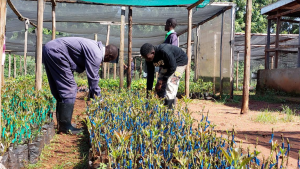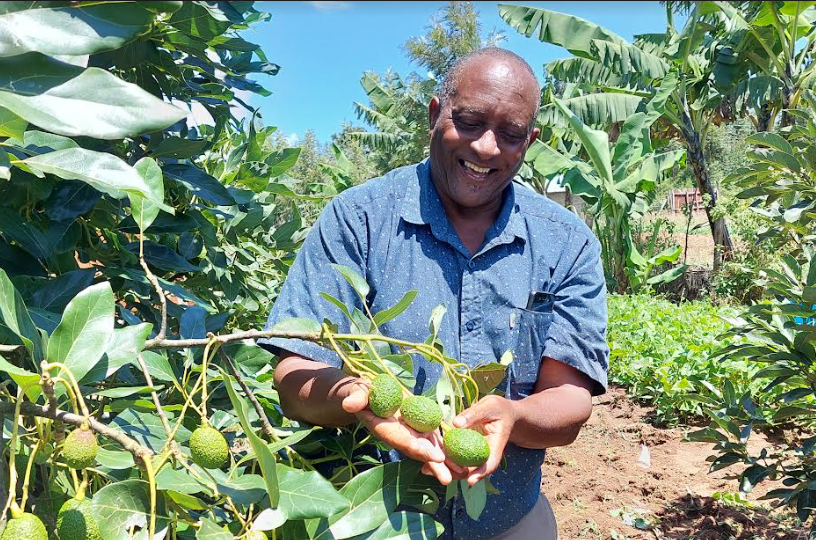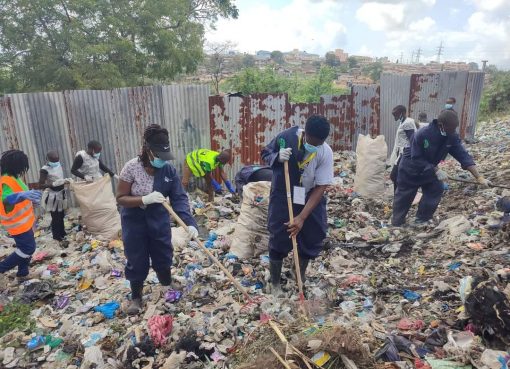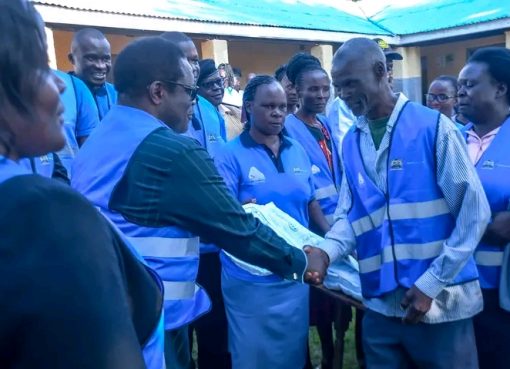Kenyan avocado production is projected to reach 445,650 metric tonnes by 2026, representing annual growth of 3.5 per cent.
Over the past decade, Food and Agriculture Organisation (FAO) statistics show that avocado production in Kenya has been increasing steadily, from 149,241 metric tonnes in 2011 to 322,556 metric tonnes in 2020, representing about 216.13 per cent.

With avocado production in the country increasing, the interest in avocado farming has also gained interest, and there has also been a high demand for clean-quality seedlings.
KTL Farming Limited, a Small Medium Enterprise (SME) in Trans Nzoia County, has not been left behind, has grabbed the opportunity, and is specialising in avocado seed production.
KTL, derived from an acronym from the Maori language in New Zealand meaning ‘pooling together in one direction’, has been working with farmers across Bungoma and Trans Nzoia on the development and marketing of avocados and associated products.
“KTL supplies farmers with avocado seedlings and offers training and services to contracted farmers for quality produce, which they then purchase for export”, Damaris Omuka, Farm Manager of KTL in Kitale, said in an interview.
She explained that planting quality, certified seedlings is important for farmers who want to reap maximum benefits from avocado production.
“The most important thing is to plant clean avocado seedlings. Farmers want the assurance that the seedlings are clean and of quality,” she said.
To ensure this, Omuka said the company was supported by the Kenya Crops and Dairy Market Systems Activity (KCDMS), funded through USAID’s Feed the Future initiative to the tune of Sh 30 million to upgrade the nursery and train farmers on avocado production and orchard management.
“Before KCDMS came onboard, we used to spend so much money on the soil testing before potting; after grafting, we again tested the soil just to give the farmers an assurance that whatever we were giving them was clean and safe for them to plant”, she explained.
KCDMS further assisted in the sterilisation chamber, which we never had, that removes any contamination, any disease that is soil-borne, or anything that is within the soil that could harm the plant at the farm level, she added.

“When we started out, our target was to recruit 2,000 farmers in Bungoma County, which was one of the KCDMS project’s targeted counties, and supply seedlings to them, but with the support of the project, we have been able to supply 45,000 seedlings to 2,750 farmers”, Omuka said.
Currently, she said they have 75,000 avocado seedlings and are targeting to sell them to farmers in the next season, and the prices range from Sh 200 per seedling.
“After supplying farmers with seedlings, we do follow up on visits to see how they are managing the avocado trees and to offer support in case they are facing any challenges. We put them into groups for traceability based on villages and wards, Omuka explained.
She confirmed that although their seedlings go for Sh 200 per one and there are others that are sold on the wayside for as low as Sh 80 shillings, she said they are quality that is true to type and disease-free, thus guaranteeing farmers over 90 percent harvest once done.
“One of the major challenges that farmers face in avocado farming is the quality of the seeds. You may buy cheap, but after three years, one realises that the avocado that they planted is not true to type, and this means harvesting nothing after three years”, Omuka said.
Overall, Omuka confirmed that KTL is doing the whole value change, from training to market linkages as well as buying the fruits from the farmers themselves.
“Once a farmer comes to pick seedlings from us, we register them for traceability and offer any support needed to manage their avocado farms, and this has seen many farmers trust them “.
Omuka advised farmers who want to engage in avocado farming to always be sure they source their seedlings from certified nurseries, as this will determine their end product and they will also be able to make a profit when selling.
Ndegwa Ndirangu, an avocado farmer in Bungoma County, said KCDMS organised a benchmarking trip for them to go to Muranga County, where avocado production is huge, and learn what the farmers were doing.
“Muranga is one of the leading counties in terms of production, with 40 per cent of their fruits getting exported. This was an eye-opener for us to learn first-hand and come and implement what we gained back at home in Bungoma “, he said.
Ndirangu, who is also the chairperson of the Bungoma Avocado Farmers Association (BAFA), noted that the team gained very insightful learnings on avocado production, management, exporter management, and cooperative governance.
“One of the key things that Bungoma farmers needed was to establish a primary cooperative within every subcounty in order for them to capture avocado production and markets for the people.
We have primary cooperatives, which we have started; first of all, we had our own, and then we have established another four. And then I think three or five are still in the process, and we are doing this because we want to develop a place where anybody who wants to come and support Bungoma Avocado Farming can anchor somewhere”, he said.
Ndirangu urged the KCDMS programme to invest in the training of more farmers, saying that although they have laid a lot of groundwork on the production and export of avocado, it’s like a baby who has just been born and will need water to bathe; thus, the programme should extend training and support on the quality of avocado seeds.
The US-Aid, through the Kenya Crops and Dairy Market Systems (KCDMS) project, will be able to supply over 100,000 avocado seedlings to farmers in western Kenya by November this year to increase agricultural production by spurring competitive, inclusive, and resilient market systems in horticulture.
By Wangari Ndirangu




